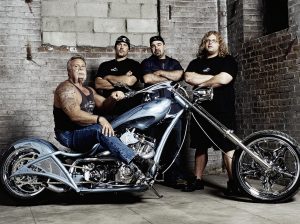
Socialite’s Family Partnership Interest
Book value can have a few different meanings. The best definition is simply the value of assets and liabilities that a company carries on its books. Is it different than the “fair value” standard applied in statutory buyouts? Yes– a lot different.
There are many partnership agreements and corporate  buy-sell agreements still in effect with a book value buyout provision. They tend to be older entities, often involving family businesses, and I cringe whenever I look at the agreement and see the term applied to the company’s value.
buy-sell agreements still in effect with a book value buyout provision. They tend to be older entities, often involving family businesses, and I cringe whenever I look at the agreement and see the term applied to the company’s value.
Book Value Used to Buy Socialite’s Interest
A recent decision involving the estate of socialite Claudia Cohen demonstrates why. Estate of Claudia Cohen v. Booth Computers, et al., Docket No. A-0319-09T2. Estate of Cohen App Div.pdf. (Thanks also to Peter Mahler’s NY Business Divorce blog for finding the trial decision. Cohen Chancery Div.pdf.) In that decision, the Cohen’s estate argued that the book value of a successful business was just less than 2 percent of its fair value – $ 178,000 as opposed to $11.526 million – and sought to reform the partnership agreement. The effort failed and the Appellate Division affirmed the trial court’s enforcement of the agreement. The disparity between book value and fair value was not, in the court’s opinion, reason to alter an otherwise unambiguous document.
The result was a windfall for the last surviving partner, Claudia’s bother James, and the same result is likely to occur in most agreements that set the value of the business at book value rather than fair value.
The Cohen case involved a partnership formed by the late Robert Cohen, an entrepreneur who amassed a considerable fortune through various entities including the Hudson News Group. He had three children – Claudia, Michael and James. Claudia, well known in Manhattan and Hamptons social circles, was also an editor of Page 6 of the New York Post and the ex-wife of entrepreneur Ronald Perelman.
The estate, with Perelman as executor, brought suit against Booth Computers and Claudia’s brother, James, after Claudia’s interest in a family partnership was valued at a fraction of the fair value of the partnership’s holdings.
Continue reading
 The Business Divorce Law Report
The Business Divorce Law Report





